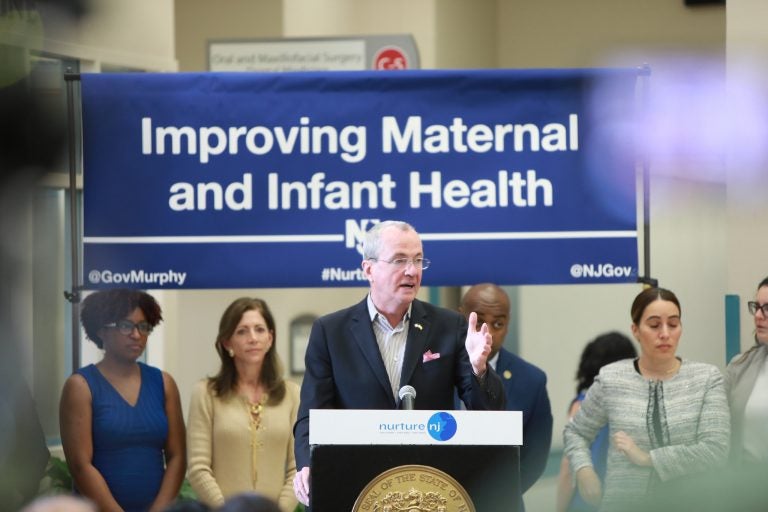N.J. takes steps to reduce its high rates of maternal, infant mortality
New Jersey will make it easier for women to access doulas, who offer can offer guidance and support during deliveries.

Governor Phil Murphy signs legislation on maternal health joined by First Lady Tammy Murphy, legislators, Newark mayor Was Baraka, and community leaders at University hospital on Wednesday May 8, 2019. (Courtesy of Edwin J. Torres/Governor's Office)
New Jersey Gov. Phil Murphy signed four bills Wednesday aimed at reducing the state’s high rates of maternal and infant mortality, which are among the worst in the nation.
“We can and we will make New Jersey the safest place to give birth in the United States of America,” said first lady Tammy Murphy at the Newark bill signing.
The new laws will block Medicaid from paying for medically unnecessary cesarean section deliveries and increase access to doulas, who help expectant mothers through childbirth.
While New Jersey’s rates of maternal and infant death are high, the statistics are even worse for women of color. Gov. Murphy said the state must continue to examine the systemic racism in its health care networks and begin to rethink maternal health.
“We’re not going to confine ourselves to looking only at the nine months of pregnancy or the precious hours in the delivery room,” Murphy said. “We’re going to focus on the years leading up to and following childbirth.”
Black women are five times more likely than white women to die from complications of childbirth within the first year of delivery, Tammy Murphy said.
Black babies in New Jersey are three times more likely than white babies to die in their first year, she added.
Jaye Wilson, a health advocate and founder of the group Melinated Moms, said it is especially difficult for women of color to access quality health care, something she learned after becoming pregnant herself.
“I soon discovered the biggest health disparity had nothing to do with my insurance,” said Wilson. “It had to do with the melanin in my skin.”
WHYY is your source for fact-based, in-depth journalism and information. As a nonprofit organization, we rely on financial support from readers like you. Please give today.




